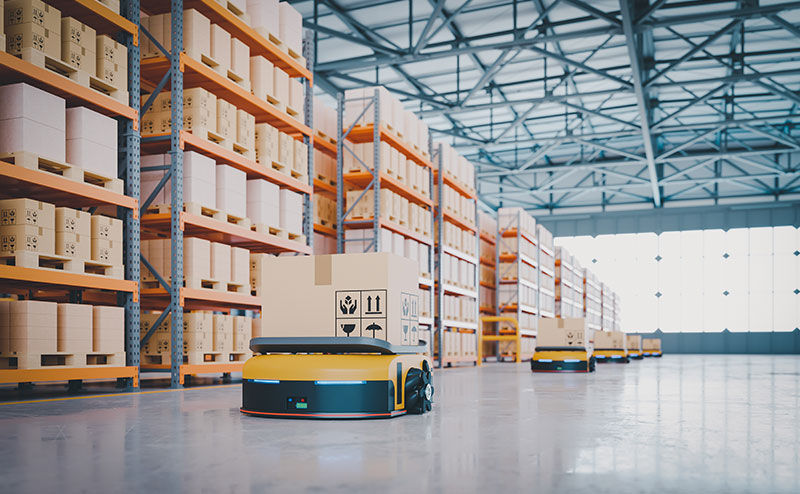Navigating change: How technology is reshaping careers in the marine sector
Technological advancements bring both promise and challenges for the marine sector. At a time when autonomous shipping, digitisation and AI are offering such promise to the sector, IMarEST’s report demonstrates how the workforce is key to enabling their integration.
The report is based on short, medium and long-term challenges identified by over 700 IMarEST professional members in a survey, and the findings might surprise you.
Rather than automation and AI systems taking the jobs of marine engineers, their deployment aboard ships and within port operations actually means that the role of engineers and technicians is becoming increasingly vital.
However, a major barrier to marine’s technological leap forward is the lack of interest among young people in pursuing careers in engineering and technical fields.
According to General Secretary Mark Dickinson of Nautilus, a global trade union for maritime professionals, rejuvenation policies aimed at creating more jobs for national seafarers are urgently needed.
The skills gap
Dickinson’s stance is supported by the world's largest international shipping association’s BIMCO/IC Manpower Report, which demonstrates a 2.1 per cent shortfall in seafarers, translating to approximately 16,500 missing officers.
Key areas facing shortages here include engineering officers at the managerial level and officers on specialised vessels, such as chemical, LNG and LPG carriers.
Moreover, researchers predict a global deficit of nearly 150,000 seafaring professionals by the end of 2025, unless the industry can improve recruitment and training efforts while minimising officer turnover.

The current shortfall of 16,500 refers specifically to officers and senior-ranking seafarers, who require specialised training that makes these gaps harder to fill quickly.
By contrast, the projected deficit of 150,000 by the end of 2025 likely includes all ranks, from officers to ratings and cadets. While the numbers seem stark, they address the shortages across the workforce — but why is this the case?
Insight from the Maritime Skills Commission (MSC) paints a clear picture. The MSC annual report 2023 reveals that the average age of a maritime professional is around 45 years, with nearly 40 per cent of the workforce over the age of 50 and only 14 per cent aged under 30.
This age imbalance presents a two-fold problem. Firstly, the looming retirement of a large proportion of the workforce will eventually lead to a significant slump in the available workforce. Secondly, a declining interest in maritime careers within the younger generation threatens to compound the problem.
Turning the tide
These issues stem from perceptions of the industry. Many young people view the sector as lacking diversity and offering poor working conditions which, coupled with limited career progression, contributes to a sluggish talent pipeline.
Even individuals residing in coastal areas often opt for careers outside of maritime, as evidenced by a recent poll conducted by Maritime UK. The poll revealed that nearly half of respondents aged 18-24 living near the coast were considering relocating, primarily due to the perceived lack of job opportunities.

However, a significant 70 per cent of those surveyed indicated that attractive career options could convince them to stick around, pointing to a great opportunity for the industry to not only attract but also keep young talent.
On top of that, the maritime sector is stepping up its commitment to sustainability. The recently announced £33 million in government funding is aimed at developing green technologies for ports and ships, which could help change young peoples’ perceptions about the industry.
This investment isn’t just about cutting down on shipping emissions, it’s also focused on creating jobs in coastal communities and boosting local economies. Because of this, there’s a growing need for expertise in ‘green skills’, like renewable energy, clean technologies and alternative fuels.
In fact, according to the Maritime Skills Commission, the demand for green jobs in the maritime sector is expected to skyrocket by 400 per cent by 2030, leading to 1.7 million new job opportunities.
Smooth sailing
As Dickinson states, there is a lot of change happening in the industry and more uncertainty to come as a result of new technology, AI and the industry’s need to decarbonise.
However, change isn’t always a bad thing. The reality is that technology enhances operational efficiency, reduces physical strain on workers and creates new job opportunities, like the aforementioned demand for green jobs.
The industry needs to demonstrate how these advancements can lead to rewarding careers, and it does not have to be daunting.

Instead of taking a huge leap forward, maritime engineers can take incremental steps through gradual technological upgrades, like the process of retrofitting, which are more manageable and appealing to workers.
For instance, autonomous ships are high-tech vessels that rely on sophisticated sensors and communication tools, requiring skilled technicians to ensure seamless operation.
This creates new roles in areas like system maintenance, cybersecurity and data analysis. Gitnux, a company that provides the latest market trends, statistics and business data, even states that 90 per cent of newly built ships will have AI capabilities by 2030.
To integrate these disruptive technologies smoothly, partnering with an automation parts supplier is essential. If you require current or obsolete automation spares for your maritime operation, then please get in touch with one of our experts via our contact page.


